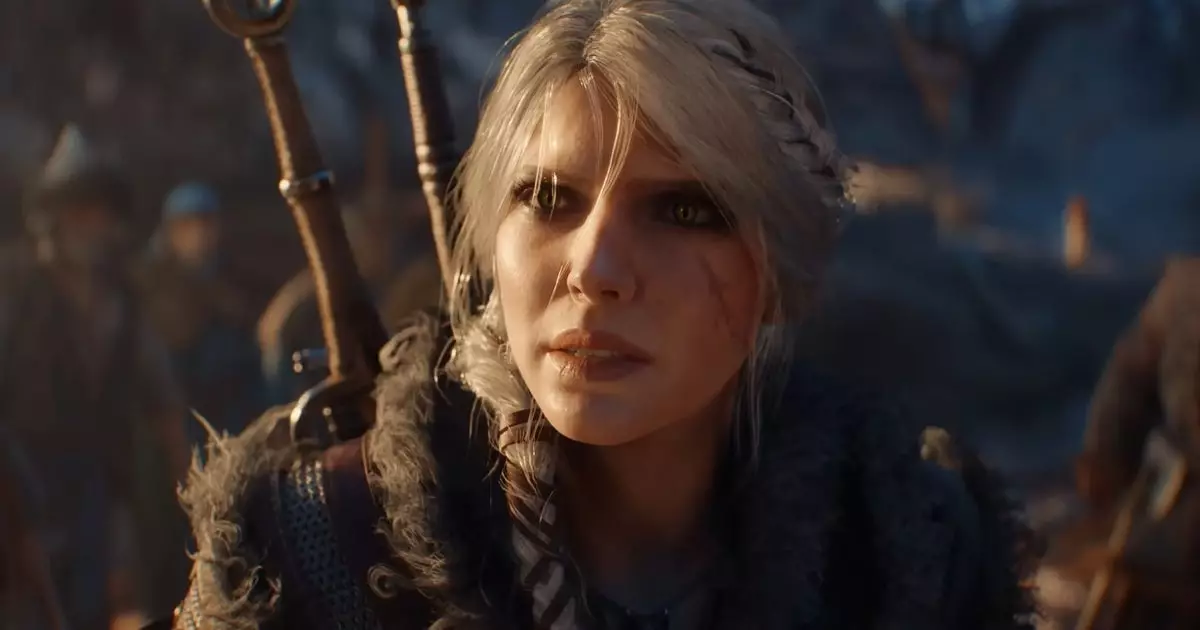As we dive deeper into the world of gaming, one thing becomes increasingly clear: patience is a virtue, especially for fans of the sprawling Witcher universe. The confirmation from CD Projekt Red regarding the delayed launch of The Witcher 4 is a mixed bag of emotions for devoted followers. A recent financial briefing sheds light on the studio’s prioritization of quality over an expedited release, signaling their commitment to delivering a game that lives up to the franchise’s rich legacy. However, the stark announcement that the game will not be available until at least 2027 tempers the excitement. While such delays are often seen as disappointing, they also present an opportunity for developers to refine and enhance their product extensively.
The competitive nature of today’s gaming industry means that a shoddy or rushed release could not only diminish consumer trust but also tarnish a beloved franchise’s reputation. CD Projekt Red understands these stakes all too well, which is why they opted against setting a target release date. As financial officer Piotr Nielubowicz stated, clarity on the timeline is crucial. This implies a strategic move not merely to meet investor expectations but to uphold the quality that gamers expect from the studio. It begs the question: Is it better to wait and receive a well-polished product, or to rush it to market and risk alienating your fan base?
Innovation Amidst Complexity
One notable aspect discussed during the earnings call was the company’s stance on employing generative AI in their development process. The hesitation is understandable, as the implications of AI on intellectual property and creative integrity are still mired in debate. The words of co-CEO Michał Nowakowski highlight a recognition of the potential pitfalls associated with using AI technology. Instead of rushing headlong into the innovative possibilities that AI presents, CD Projekt wants to ensure that any integration aligns well with their artistic vision and legal requirements.
This cautious approach allows for the exploration of AI’s capabilities without compromising the creative identity of The Witcher franchise. The studio’s investigation into developing customized AI solutions points to a future where intelligent technology could possibly revolutionize game design. But for now, it seems that they prefer to rely on traditional artistry and meticulous craftsmanship—a decision that resonates with many fans who cherish the intricacy and depth of storytelling within the Witcher world.
Thematic Depth with Ciri at the Helm
Equally exciting is the revelation that the protagonist of The Witcher 4 will be Ciri, shifting the spotlight from Geralt to a new character with rich narratives to explore. This decision aligns with CD Projekt Red’s intention to delve deeper into pressing societal themes such as sexism in the fantasy genre. By positioning Ciri—a complex character who navigates a world rife with prejudices—as the lead, the game opens the door to discussions and explorations that are both timely and relevant to current times.
If handled with the nuance and grace that The Witcher series is known for, this narrative direction could offer a fresh perspective while still paying homage to the franchise’s roots. With Ciri confronting an ancient evil, the stakes are not just personal but societal, enriching the storytelling fabric of the game and enhancing player engagement.
Gwent: A Fan-Favorite Returns
In addition to Ciri’s central role, the return of the beloved in-universe card game Gwent adds another layer of excitement to the forthcoming installment. After making waves in earlier games and earning its own standalone title, Gwent is a testament to CD Projekt Red’s ability to craft engaging gameplay that transcends traditional RPG boundaries. The blend of storytelling and interactive gameplay through Gwent will likely satisfy both card game aficionados and those invested in the Witcher narrative.
As anticipation grows for The Witcher 4, it’s clear that CD Projekt Red’s deliberate pacing, commitment to high-quality production, and exploration of relevant themes reflect their understanding of what it means to create a truly immersive gaming experience. While waiting for 2027 might seem daunting, it promises a rewarding journey into a world that continues to expand and thrive.

